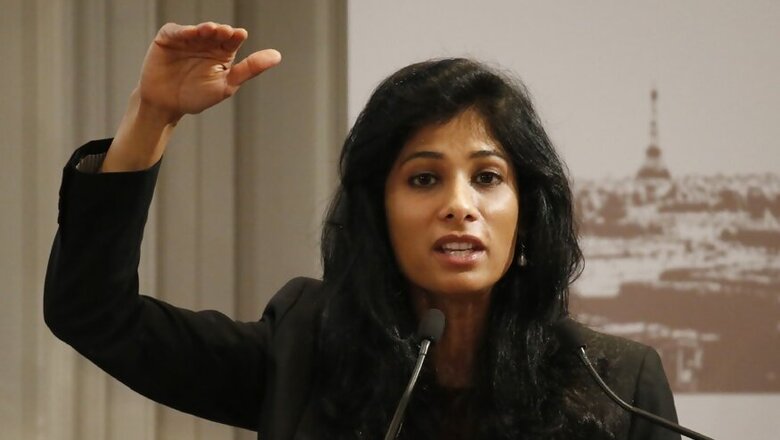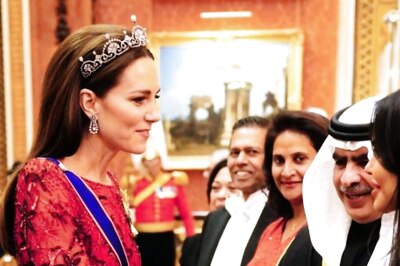
views
New Delhi: One of the major factors behind the downward revision in India's GDP was weakness in credit growth, Chief Economist of International Monetary Fund Gita Gopinath said on Monday. However, the IMF, which sharply cut India's growth rate, is projecting a recovery in 2020-21, she said.
"There is also some part of it that has to do with weakness in rural income growth. We are expecting to see the recovery happening in the first half of fiscal year 2020-2021," Gopinath told CNBC-TV18.
"But we do have growth going back up to 5.8 per cent in the following fiscal. But there are a couple of month's stabilisation and then we should see a recovery."
"I want you to recognise there is a fair amount of stimulus that has come from monetary policy rate cuts and we expect that to feed into the system over the next 12 months," she said.
Gopinath further said in terms of priority, it has to be how do the credit growth is resuscitated. At the same time, making sure that there is not going to be another non-performing asset problem in the future, she said. "I think that is the tricky balance that the government has to hit."
On personal income tax cuts, she said, "On the fiscal side, there was already one major reform that was done which was the corporate tax and we think that should affect, though of course it takes a while. It is not something that happens immediately."
India has to pay attention to fiscal consolidation, she said, adding that policies in terms of rural income transfers may help immediately in terms of consumer spending. She said efforts to mobilise more revenue will give the government more space to act, she added.
On fiscal consolidation, Gopinath said, "We always think of fiscal consolidation from a medium-term perspective. So I think it is very important for the government to signal such commitment to fiscal prudence going forward and of course, the details of the spending also matters. It is not just what your fiscal deficit is. It is what your spending on that matters."
Hailed the trade deal between China and US, the economist said, "We welcome the phase-1 deal, but the risks are certainly not off the table. There is a lot more to be done and we hope that these negotiations will be durable. That it will be more comprehensive and more tariffs will be rolled back. But again I think we should welcome this at this current juncture."


















Comments
0 comment